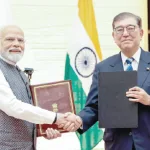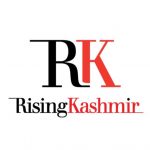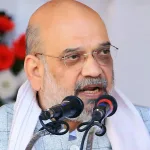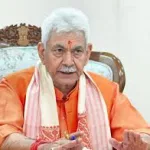The countrywide debate in India regarding the polls — assembly, local and National elections —together is a sign of a healthy democracy. The move indicates that the country’s leadership is progressive and forward looking. But the principal aim must be reforming the colossal election process and making it as convenient as possible in the larger interest of public.
Not only will the conduct of joint elections save massive expenses but it will expectedly induce the candidates/ leaders to largely work for the betterment of the country. The reason being, the leaders are likely to remain under pressure knowing that the electoral defeat will mean a long wait upto the new election time. In light of this scenario, voters will be at an advantage: they will no longer be affected by elections after elections every year.
Most importantly, leaders will stay connected with people at the grassroots level, learn about the real issues facing them and work earnestly for their resolution. It is a known fact that around 95% elected leaders prefer to stay away from their voters and visit them only at the election time. Moreover, the simultaneous polls will save much time for the administration to work for the national development and progress.
Since holding simultaneous polls is a reform , it remains to be seen how far the step succeeds in the face of a few challenges. One , there is no consensus as yet among the political parties about the matter. Two, the modalities are to be framed to make the poll process convenient and comfortable for the electorate.Three, conducting polls at the same time is an uphill task despite the fact such like polls were in vogue upto 1967 in the country. Obviously, it had been a short period ,since independence in 1947, for which a joint poll practice had lasted. One big reason for ending that practice ostensibly was the number of hardships involved in completing the process.
For the Opposition, the main concern appears to be that the polls if held together are likely to diminish their winning chances: the move is going to deter them from making inroads into the ruling party’s conduct in each separate election for the latter’s eventual fall. And mainly joint polls will brighten the victory prospects of the ruling party by reducing the resistance from the opposition parties and thus weakening their fighting spirit.
Pertinently, the separate polls would provide the opposition parties as well as the ruling party a golden opportunity to feel the voters’ pulse. Polls held in a particular region reflect public mood and the standing of the party contesting in the region. Besides, these results from separate polls allow a political candidate or party figure out the weak and strong points from the contest and subsequently work in a manner suitable for the constituency.
For the voting public, the simultaneous polls, I repeat, will have an added advantage: they are bound to bring the able-minded and dedicated leaders into action. How? Knowing that a particular election is the occasion to win before the next election falls— a long wait untill then— it will be a now or never situation for a candidate or party. In view of this, the elected candidates could be better motivated to put ahead public interest; and they should look for the policies aimed at public good.
However, there is an apprehension regarding the conduct of joint elections. Well aware that they are required to rule for a full term, most political leaders are likely to abuse, misuse or overuse their powers. The outcome could prove disastrous for public; plus, this will deal a big blow to the democratic credentials and ethos. To prevent that meltdown, the current provision of separate polls is a blessing. Leaders remain under pressure to better their performance and seek good public opinion to stay relevant in office. A bad image of a leader sooner or later leads to his/ her ouster at a new election.
With the decision of conducting all types of polls together in the country pending, there must be a comprehensive and cooperative debate on its pros and cons. An objective analysis of the top move is the key. It is noteworthy that the elections consume a massive amount of money apart from creating inconvenience in multiple ways. Therefore, all aspects of conducting polls, joint or separate, must be considered impartially before coming up with the final decision.
(Author is a teacher by profession and RK columnist. He can be reached on: [email protected])





